If you click on links we provide, we may receive compensation.
Psoriasis doesn’t just affect your skin – it affects your confidence, your comfort, and sometimes your entire routine. For the 7.5 million Americans living with it, according to the National Psoriasis Foundation, the search for relief often becomes a cycle of trial and error. The condition is chronic and inflammatory, with red, scaly plaques that flare up on the elbows, knees, scalp, and other areas. Topical treatments remain the first line of defense, but which ones are worth your time (and money)?
Here’s what actually helps – from gentle over-the-counter creams to dermatologist-backed prescriptions, plus a few surprising natural remedies that get rave reviews.
What Psoriasis Does to Skin
Before jumping into product recommendations, it helps to know what psoriasis is doing under the surface. Psoriasis accelerates the life cycle of skin cells. Instead of renewing every 28 to 30 days, new cells rise to the surface every 3 to 4 days. The result? Buildup of thick patches, inflammation, dryness, and intense itching or burning.
Psoriasis isn’t caused by poor hygiene or an allergy. It’s autoimmune. The skin is simply overreacting.
The challenge for topical skincare is managing that reaction without making things worse. That’s why many people with psoriasis struggle to find products that soothe without stinging or triggering more flaking.

Core Ingredients to Look For
Whether you’re going natural or prescription, the best psoriasis skincare products usually include one or more of the following:
- Salicylic acid (exfoliates dead skin)
- Coal tar (slows skin cell growth)
- Topical corticosteroids (reduce inflammation)
- Vitamin D analogs (normalize skin turnover)
- Moisturizers (prevent cracking and irritation)
- Oats and ceramides (support the skin barrier)
- Natural oils and butters (restore softness and reduce tightness)
Now, let’s break down the best options into natural, over the counter, and prescription treatments.
Natural Remedies That Actually Help
If your skin is sensitive to synthetic ingredients or you’re looking for gentler support between prescriptions, nature still has some options. These are not cures – but they can help manage symptoms and reduce flare frequency.
1. Aloe Vera Gel (for calming inflammation)
Aloe is well-known for its soothing properties. It reduces redness, hydrates dry plaques, and cools itching. Look for organic, fragrance-free aloe that isn’t full of thickeners.
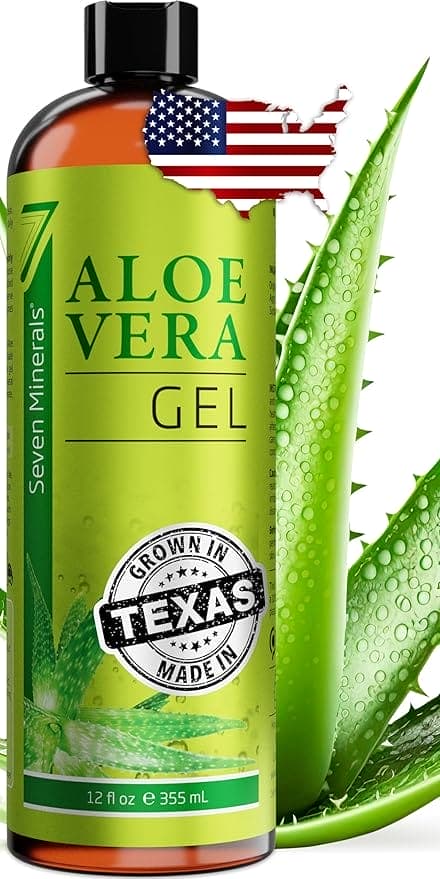
Try: Seven Minerals Organic Aloe Vera Gel
Cold-pressed and free of artificial colors or alcohol.
2. Dead Sea Mineral Creams (for exfoliation + minerals)
Dead Sea salts are rich in magnesium and potassium, which can help soften plaques and promote skin repair. When added to a cream, these minerals provide both exfoliating and healing benefits.
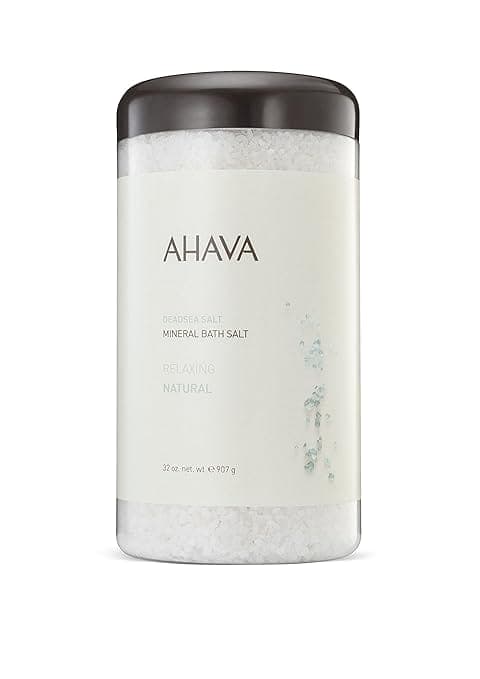
Try: Ahava Dead Sea Mineral Body Lotion
Gentle enough for daily use with real Dead Sea water.
3. Coconut Oil (for softening and reducing scales)
The lauric acid in coconut oil can help reduce inflammation, and its fatty acids are ideal for softening thick plaques.
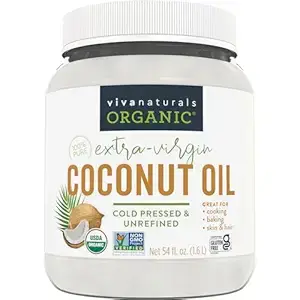
Try: Viva Naturals Organic Extra Virgin Coconut Oil
Multi-use and USDA organic.
4. Shea Butter and Tamanu Oil (for deep moisture + healing)
Raw shea butter is full of vitamin E and fatty acids. Tamanu oil, while lesser known, is an antimicrobial and anti-inflammatory oil from the South Pacific.
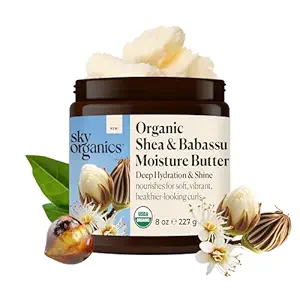
Try:
5. Oat Extract and Colloidal Oatmeal (for barrier support)
Oats are clinically proven to reduce itch and dryness. They support the skin barrier, making them excellent in bath soaks or as a cream base.
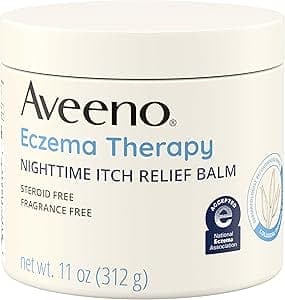
Try: Aveeno Eczema Therapy Itch Relief Balm
Colloidal oatmeal-based and recommended by dermatologists.
6. Tea Tree Oil (spot treatment only)
This is strong stuff. It can be helpful for scalp psoriasis or limited plaque areas – but it should always be diluted. Avoid if your skin barrier is cracked or raw.
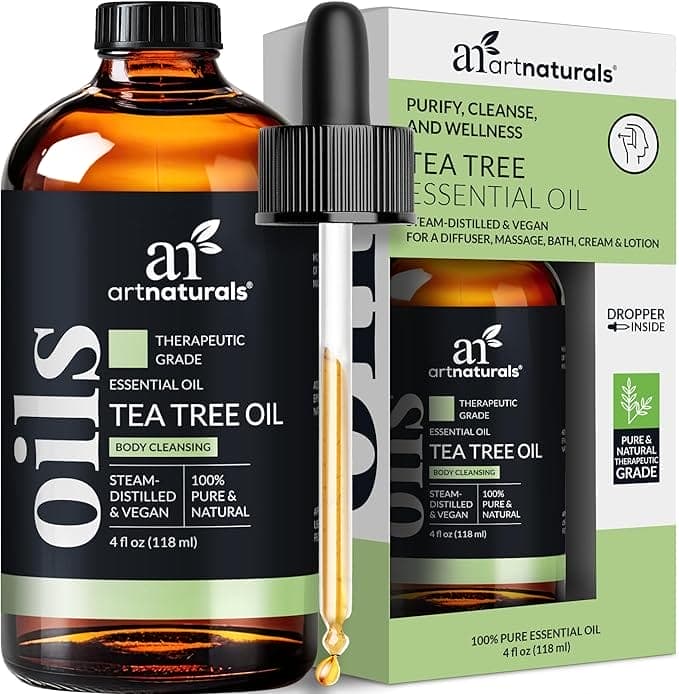
Try: ArtNaturals Tea Tree Essential Oil
Use with a carrier oil like jojoba.
7. Apple Cider Vinegar (for scalp itch)
This may sound like a TikTok gimmick, but ACV rinses have long been used to relieve itching and scaling on the scalp. Just dilute with water and rinse out after a few minutes.
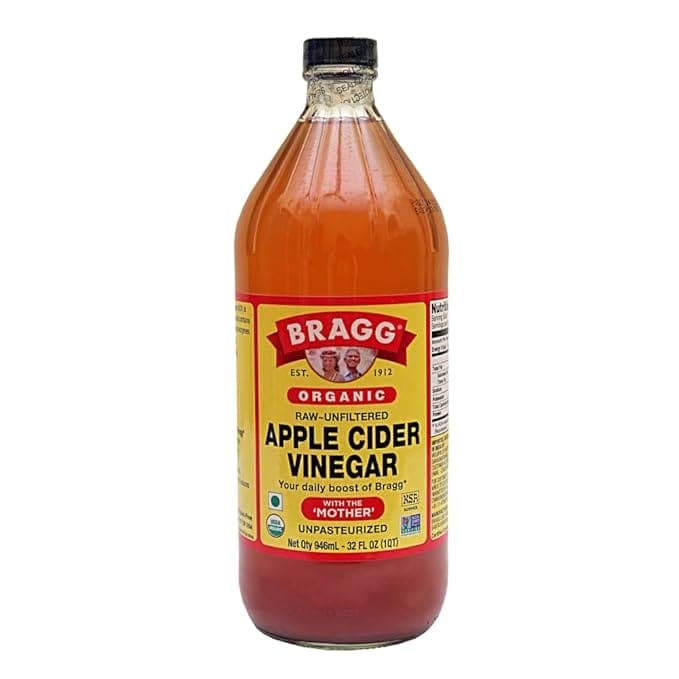
Try: Bragg Organic Raw Apple Cider Vinegar
Over-the-Counter Psoriasis Treatments That Work
You don’t need a prescription to get real results. These options are regulated by the FDA and often contain salicylic acid, coal tar, or vitamin B3 analogs.
1. MG217 Psoriasis Medicated Coal Tar Ointment
Coal tar has been used for over 100 years. It slows skin cell growth and helps reduce thick, scaly patches. MG217 is one of the few brands with FDA-compliant concentrations.
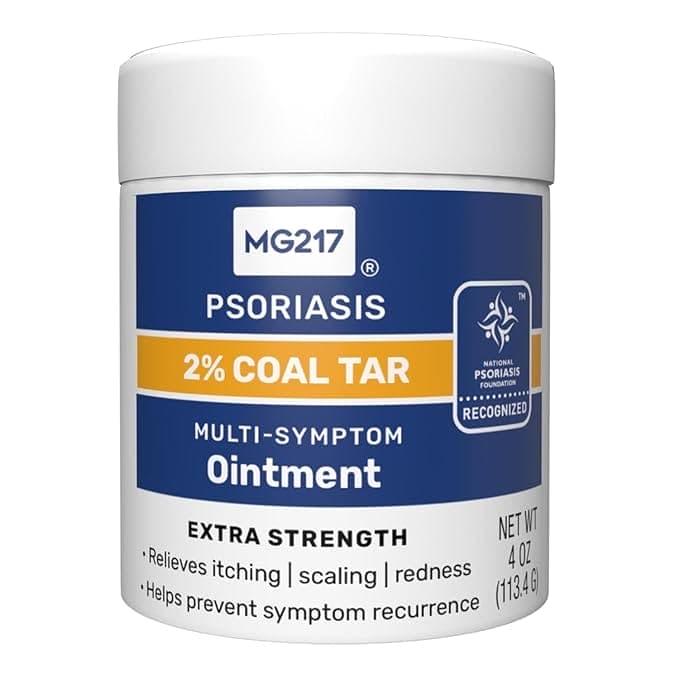
Find it on Amazon: https://www.amazon.com/dp/B00FH69XI2
2. CeraVe Psoriasis Cleanser
This gentle cleanser includes salicylic acid, lactic acid, niacinamide, and ceramides. It’s designed to remove scales without stripping skin.
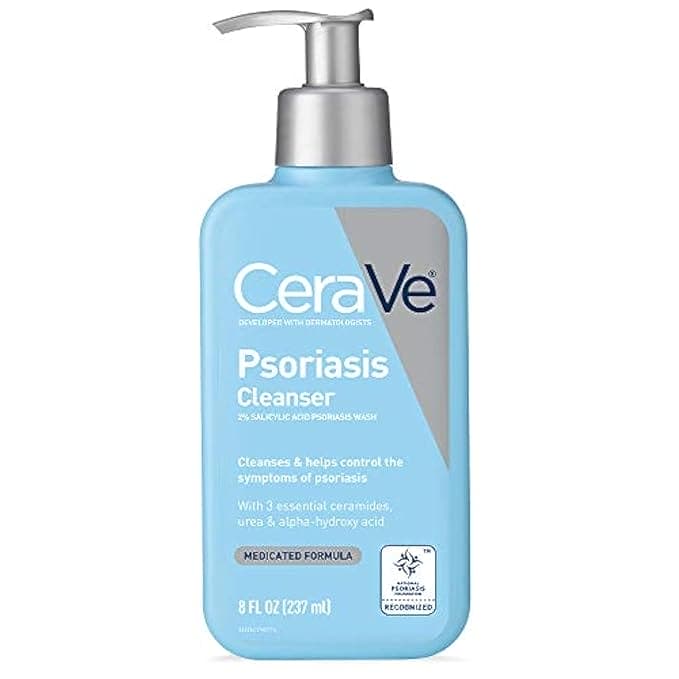
Find it on Amazon: https://www.amazon.com/dp/B08FRQRX2T
3. Dermarest Psoriasis Medicated Treatment Gel
Combines 3% salicylic acid with zinc complex to calm skin and reduce redness. Especially helpful for stubborn elbow and knee patches.
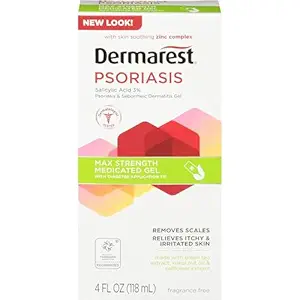
Find it on Amazon: https://www.amazon.com/dp/B01M9HEQTT
4. Gold Bond Multi-Symptom Psoriasis Relief Cream
A non-sticky formula with salicylic acid and soothing botanicals. It’s steroid-free and can be used long-term.
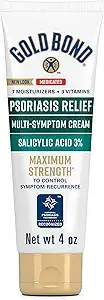
Find it on Amazon: https://www.amazon.com/dp/B01LTI07Y4
Prescription Topicals for Psoriasis
When over the counter and natural options don’t provide enough relief, prescription topicals step in. These are stronger, faster-acting, and sometimes combined with other therapies like phototherapy or oral meds.
Topical Corticosteroids (e.g., Clobetasol, Betamethasone)
These are first-line for moderate-to-severe flare-ups. They reduce redness, swelling, and itch fast. However, long-term use can thin the skin.
Vitamin D Analogues (e.g., Calcipotriene)
These slow skin cell growth and are often used in combination with corticosteroids to boost results. Less risk of skin thinning, making them ideal for long-term use.
Calcineurin Inhibitors (e.g., Tacrolimus, Pimecrolimus)
Originally developed for eczema, these can help with facial or intertriginous psoriasis where steroids may be too harsh.
Tazarotene (Vitamin A derivative)
This topical retinoid helps normalize cell turnover and reduce scaling. Often used with a steroid to minimize irritation.
Your dermatologist will weigh the location, severity, and type of psoriasis before prescribing. Some may also recommend compounded formulas that mix ingredients for better synergy.
What About Scalp Psoriasis?
Scalp psoriasis can be particularly frustrating. The skin is often inflamed, tight, and buried under hair, making product application tricky.
Try these:
1. Neutrogena T/Gel Therapeutic Shampoo
A staple coal tar shampoo that helps reduce scaling and itching.
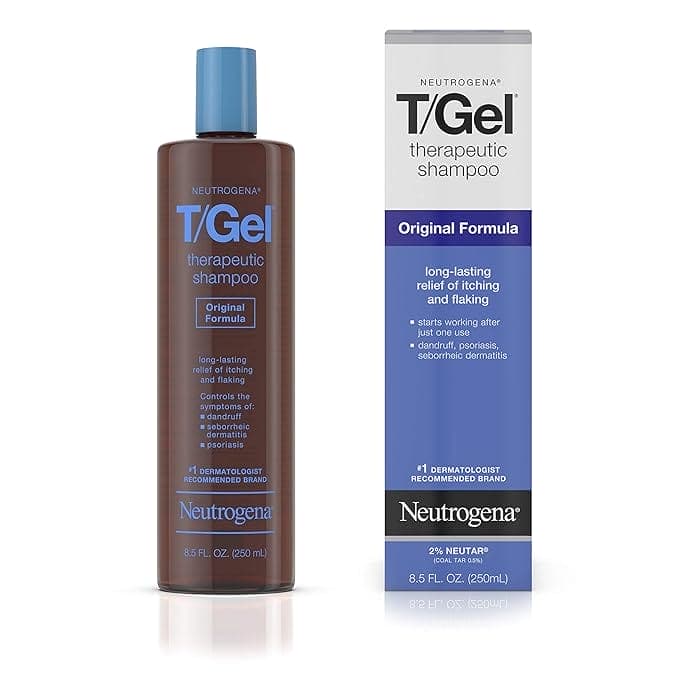
Amazon: https://www.amazon.com/dp/B001ET76AI
2. Dermasolve Scalp Oil
Formulated with salicylic acid and natural oils. Great for overnight treatment.
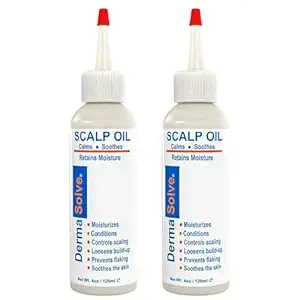
Amazon: https://www.amazon.com/dp/B002DUC3KQ
3. MG217 Medicated Salicylic Acid Shampoo
Exfoliates without sulfates and adds moisture to dry scalp skin.
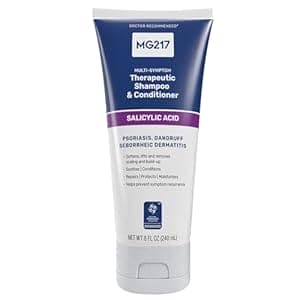
Amazon: https://www.amazon.com/dp/B0016JZFOU
Do These Products Cure Psoriasis?
No topical cream or oil will cure psoriasis. It’s a chronic, immune-mediated condition that requires ongoing management. But a good product can reduce flare frequency, shorten healing time, and relieve symptoms like itching and burning.
The key is matching the product to your current skin state. For example, heavy ointments work best on thick plaques, while light lotions are better for areas prone to rubbing or heat.
If one product doesn’t work, don’t give up. Most people with psoriasis need a toolbox – not a miracle cure.
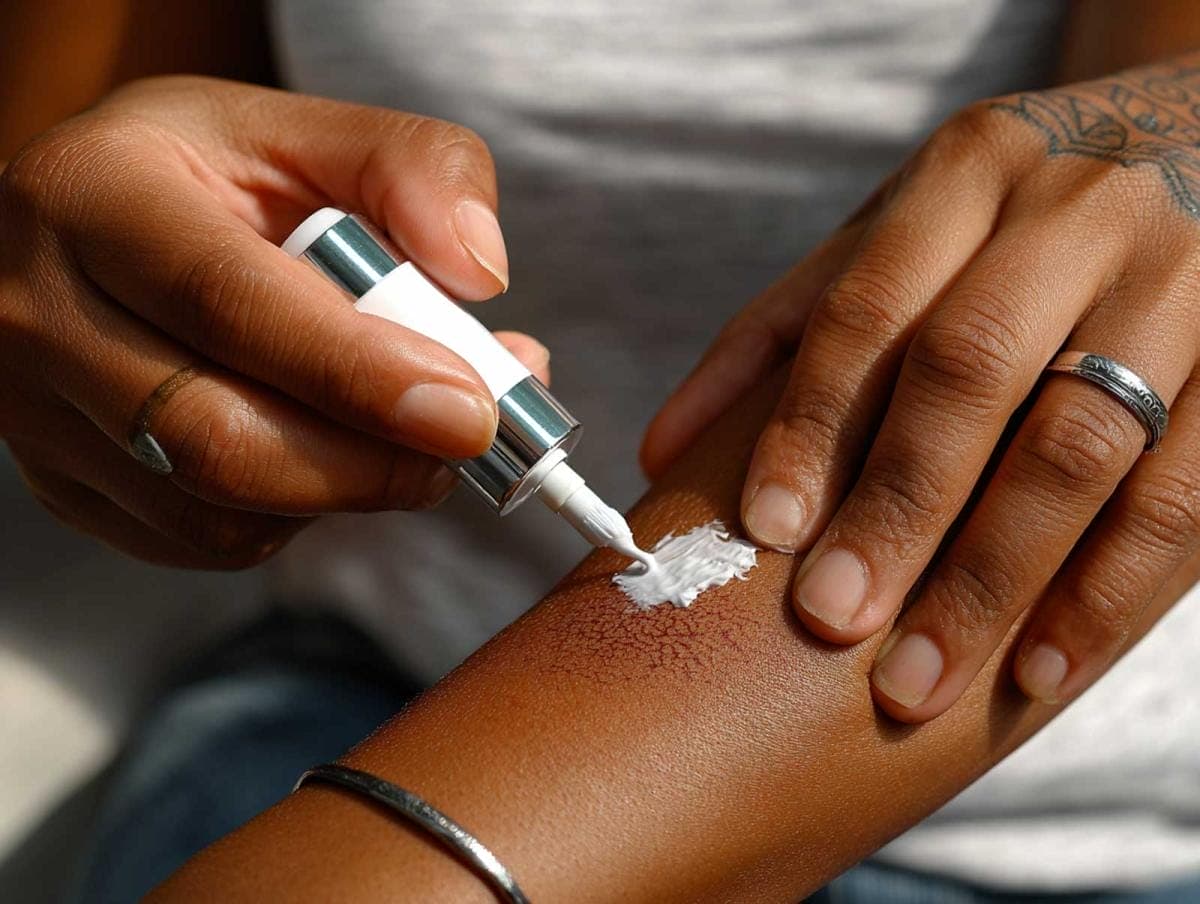
How to Layer Products for Psoriasis
If you’re combining natural and medical treatments, here’s a safe order:
- Start with a gentle cleanser or warm water rinse (no scrubbing).
- Apply any prescription topical or medicated treatment first.
- After absorption, layer a hydrating cream or butter to lock in moisture.
- Use oils (like coconut or tamanu) last if needed, as occlusive seals.
Avoid using multiple actives (like salicylic acid + retinoids) unless advised by a professional.
FAQs
Can psoriasis go away on its own?
Rarely. It may go into remission, but most cases require ongoing care.
Is it safe to use steroid creams long term?
Not continuously. That’s why dermatologists often alternate with non-steroid options like calcipotriene or natural moisturizers.
Does diet affect psoriasis?
For some, yes. Gluten, dairy, and sugar may trigger flares. Omega-3-rich foods like salmon and flaxseed may help reduce inflammation.
What’s the best cream for mild psoriasis?
Look for options with salicylic acid and soothing bases – CeraVe Psoriasis Cream is a great example.
What about kids with psoriasis?
Always talk to a pediatric dermatologist. Many natural options (like oats or aloe) are safe, but medicated treatments must be dosed carefully.
Final Psoriasis Thoughts
Managing psoriasis means balancing skin science with a little trial and error. What works for one person may not work for another – but understanding your options makes the process less overwhelming. Whether you lean natural, stick to OTC products, or rely on prescriptions, there are plenty of ways to make your skin feel like yours again.
Don’t underestimate the basics either: gentle cleansing, consistent moisturizing, and avoiding harsh triggers like fragrance, sulfates, or extreme temperatures.
And above all, be patient with your skin. Psoriasis is stubborn – but with the right routine, you can be more comfortable in it.




